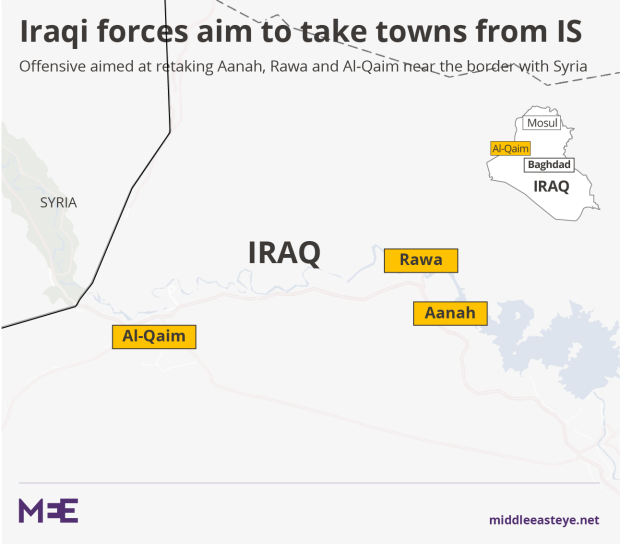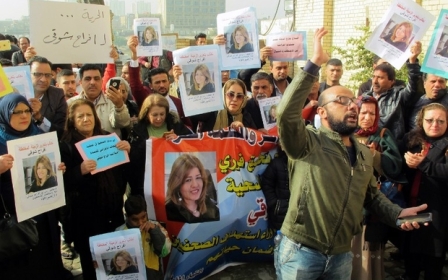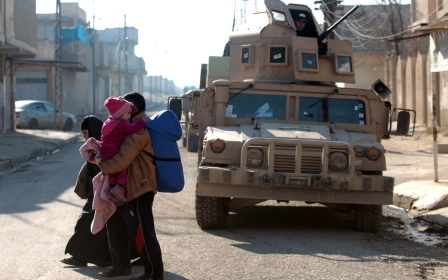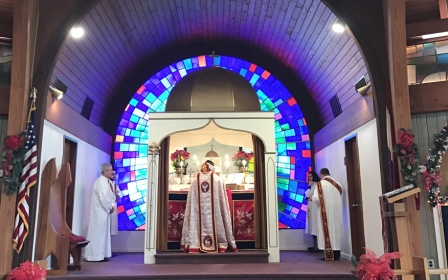Iraq forces launch operation to retake western area
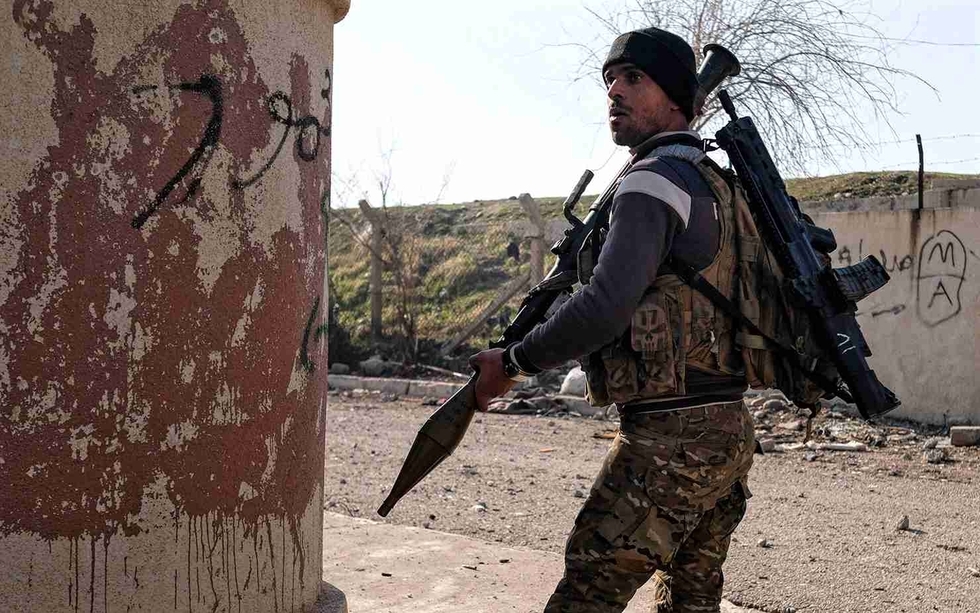
Iraqi forces on Thursday launched an offensive aimed at retaking towns still under the control of the Islamic State group in western areas near the border with Syria, commanders said.
"A military operation has begun in the western areas of Anbar to liberate them from Daesh," said Lieutenant General Qassem Mohammedi, commander of the Jazeera Operations Command, using an Arabic acronym for IS.
He said the operation was led by the army's 7th division, police, and fighters from local tribes that have opposed the militants, with aerial backing from the US-led coalition.
The main targets of the operation are Aanah, Rawa and Al-Qaim, the westernmost Iraqi towns along the Euphrates Valley.
The militants' hub of Al-Qaim, which lies 330 kilometres (200 miles) northwest of Baghdad, is still a long way down the road and the most immediate target of the new offensive is the town of Aanah."Our forces started advancing from Haditha towards Aanah from several directions," Mohammedi told AFP.
READ: Why world's biggest military operation has run into trouble
Haditha was never seized by IS when the group swept across much of Iraq's Sunni Arab heartland in 2014 and is home to a tribe that has led the fight against IS in the area.
"Zero hour has come to liberate the western areas," Nadhom al-Jughaifi, a commander with the Haditha tribal fighters, said.
In 2016, Iraqi forces retook large parts of the vast province of Anbar, including its capital Ramadi and the city of Fallujah.
Anbar is a desert area traversed by the Euphrates that borders Saudi Arabia, Jordan and Syria. Security in reconquered areas remains precarious and militants continue to move across the province.
Tens of thousands of Iraqi forces are currently involved in an offensive to retake Mosul, the main northern city which is also IS's last major stronghold in the country.
IS has lost more than half of the territory it once controlled in Iraq and the loss of Mosul would deal a major blow to the "caliphate" it proclaimed there in June 2014.
Advances in Mosul
Iraqi army and security forces are working better together in their battle against Islamic State militants and are gaining momentum in the 11-week campaign to retake Mosul, the commander of the US-led coalition backing them said on Wednesday.
'For about two months ... what we saw is that there wasn't enough synchronization between each of the different attacking axes and forces'
- Steve Townsend, US Army Lieutenant-General
During a helicopter tour over recently recaptured areas, US Army Lieutenant-General Steve Townsend said coordination had been largely absent in the first two months of the campaign, when Iraqi forces made slow progress after breaching the city.
Elite counter-terrorism troops entered Mosul from the east and seized a quarter of the city but troops on other fronts stalled, leading to a military pause last month.
Since resuming the offensive last week, the counter-terrorism service, rapid response division and federal police have retaken several eastern districts - despite fierce resistance - and joined flanks in areas that had been vulnerable to attack.
Townsend said Iraqi commanders, with guidance from the coalition, decided two weeks ago that the various pro-government forces would have to coordinate much more closely.
READ: A day in the life of a Mosul field hospital
For about two months ... what we saw is that there wasn't enough synchronization between each of the different attacking axes and forces," he told Reuters after visiting US troops and talking to Iraqi commanders at a coalition outpost north of Mosul.
"Before... we were seeing progress mostly on one main axis and halting progress on the others. Now we're actually seeing forward movement on all of the axes in eastern Mosul," he said.
Townsend heads Operation Inherent Resolve, a coalition of military forces from Western and Arab countries that has been bombing Islamic State positions in Iraq and neighbouring Syria since 2014.
It is now providing air support and some ground assistance to the Iraqi assault on Mosul, and has embedded officers with Iraqi commanders to help plan each step of the offensive.
The Mosul assault, involving a 100,000-strong ground force of Iraqi government troops, members of the autonomous Kurdish security forces and mainly Shia militiamen, is the most complex battle in Iraq since the US-led invasion in 2003.
New MEE newsletter: Jerusalem Dispatch
Sign up to get the latest insights and analysis on Israel-Palestine, alongside Turkey Unpacked and other MEE newsletters
Middle East Eye delivers independent and unrivalled coverage and analysis of the Middle East, North Africa and beyond. To learn more about republishing this content and the associated fees, please fill out this form. More about MEE can be found here.


